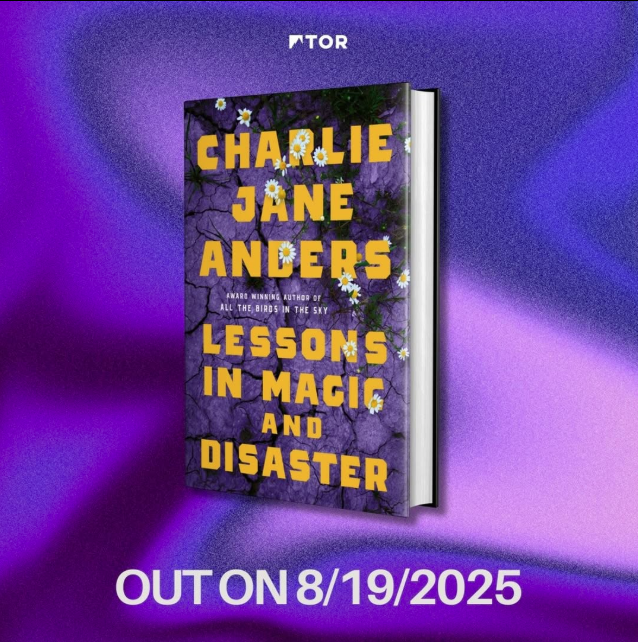Why the Worst People Are So Keen to Wreck Art and Culture
The original title of Lessons in Magic and Disaster was a very on-the-nose placeholder: My Mother, My Apprentice.
That's about as basic as you can get for the title of a novel about a woman teaching her mother how to do magic. Later, I went through a bunch of other titles. For a while, the book was called Can We Be Friends?, meaning: Can you be friends with your mom? Then for a long time, it was called The Prodigal Mother, which stuck hard enough that I even printed some stickers with that title on it.
But Lessons in Magic and Disaster had one early title in particular that still sticks in my mind. It feels very emblematic of a lot of this book's themes: The Humanities.
I like the idea of calling this book The Humanities, because it feels like a very gentle double entendre. That is, it refers to the humanities as a field of study, but also to the many different ways of being human. I still think it has a really lovely ring to it.
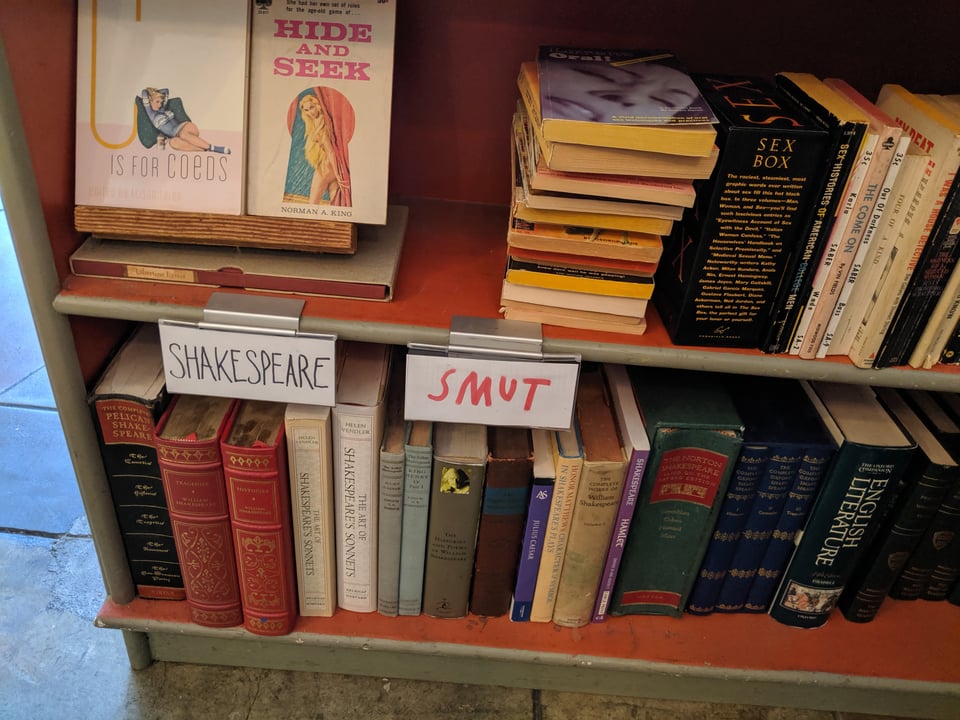
One theme, or motif, of Lessons in Magic and Disaster is all the ways in which the humanities are being stripped away. Like, we’re being taught by mainstream culture that getting an English degree is a waste of time, and that thinking about the meaning of stories will not prepare you for life in the world. This, in turn, comes from the assumption that the purpose of a college degree is as a qualification for a middle-class career — rather than a sign that you have learned something that has value in its own right. That you have gained critical thinking skills, of exactly the sort that studying literature would give you.
If I were feeling extra snarky, I might point out that critical thinking skills would indeed be a drawback if you're trying to get a career pumping up the A.I. hype bubble, but never mind.
I started working seriously on Lessons in 2020, when education was certainly having a weird moment. But I was also drawing on what I'd seen happening for years, with the degradation of higher education in general, and the humanities in particular. My main character Jamie is a PhD student in English lit, doing her dissertation on a mysterious novel published in 1749. In my earliest drafts, all sorts of bizarre things are happening on campus, because I do love some absurdism. Like at one point early on, I wrote, “the Business School is teaching ways to monetize your orgasm.” (That notion did not make it into the final book.)
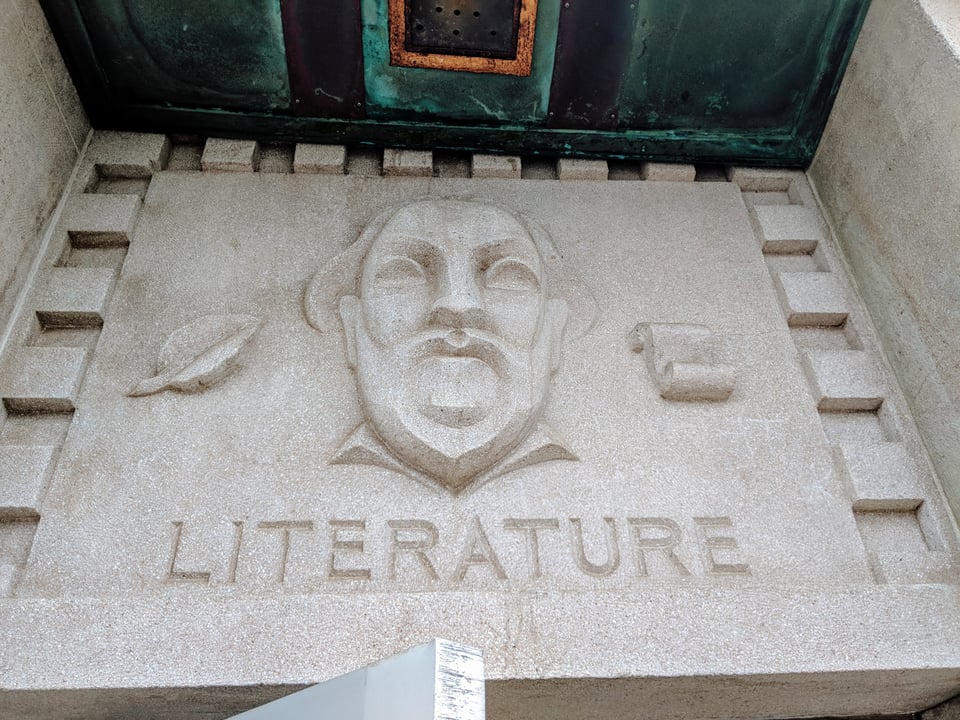
The main absurd piece of worldbuilding I decided to stick with is the notion of the Quantified Text. The Quantified Text Initiative happened when the English department at Jamie’s university got dragged into a scheme to use algorithms to analyze the text of books. Like, for example, looking at how often a particular word is used in construction with other words. The idea was that you could reduce any work of literature to pure data — and then nobody would ever have to read it. I came up with this silly idea back in 2020, before chatGPT was a thing — I was partly thinking about the Quantified Self, a trend where Silicon Valley people were trying to turn every aspect of their bodies and lives into numbers.
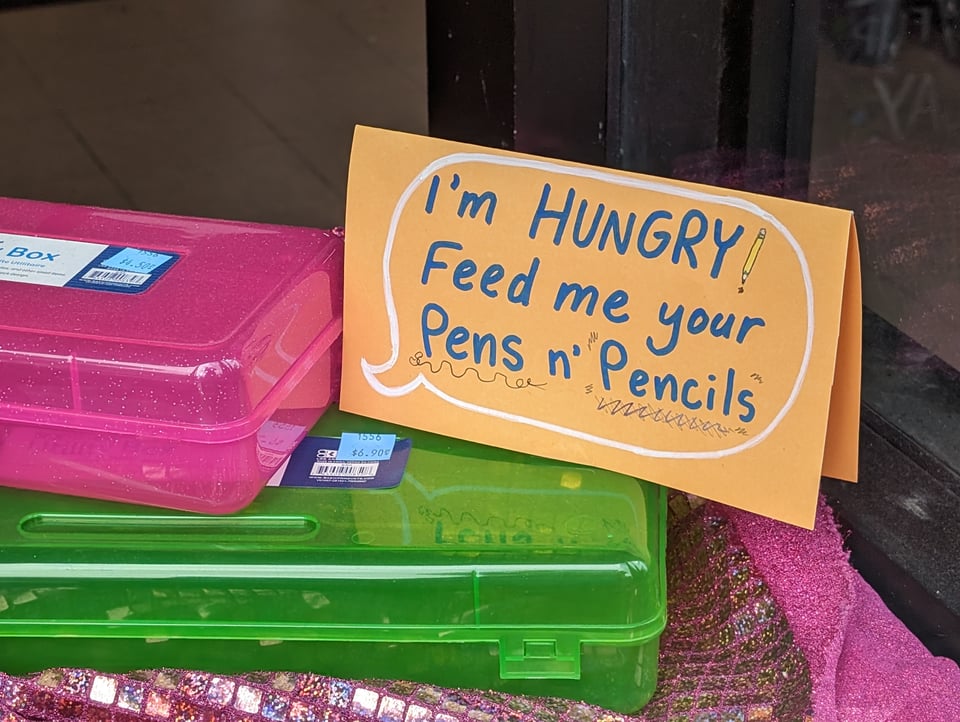
In Lessons in Magic and Disaster, the Quantified Text Initiative has proven a miserable failure, leaving the English department in a more yawning budgetary hole than before. The trustees of the university, who are described in somewhat Lovecraftian terms as a many-eyed entity that one must never gaze upon, are concerned, and everything is on the chopping block.
The Quantified Text thing was explored in somewhat more detail in earlier drafts of Lessons in Magic and Disaster, but it’s still there in the final book, here and there. I found it a useful way of thinking about this notion that everything can be reduced to data — including human creativity — and explaining why this idea is ultimately anti-human.
But the Quantified Text also provided a useful metaphor for why Jamie is doing magic in the first place.
Jamie is teaching her mother how to do magic, but this is a huge challenge, because Jamie cannot explain magic. At all. She can only talk about it in the vaguest of terms. This is partly because she doesn't fully understand magic herself, and partly because she feels like explaining will ruin it — much the same way that you never explain a joke. I am very much not one of those people who believes that magic needs to have rules and systems — see this excellent essay by NK Jemisin — and I think of magic as being a bit like poetry. As she tells her mom, magic is “not a set of parameters, it’s a feeling. And you have to go with what feels right.”
Jamie has a lot of rants about the humanities, which I boiled down to one short rant in the final version of the book:
“Not everything is exact, or a science. The world is full of flukes, and whims, and unpredictable crap, and that stuff is the most important of all, no matter how much people want to double down on machine learning and statistics and the bloody quantified text. The things that are hardest to talk about are the things most worth talking about. …
Everything in the world is trying to keep us from getting lost in thought lately. There’s endless pressure to make enough money so you can keep paying sky-high rents, and anxiety is our natural state. All of our culture is demanding that things be clear-cut and simple, when messiness is beauty.”
If I was gonna get a quote from one of my books as a tattoo, I think it would be "messiness is beauty". Or maybe, “The things that are hardest to talk about are the things most worth talking about.” Because that's why I write fiction in the first place: to talk about the stuff that's hardest to talk about.
Jamie has another rant in earlier drafts, and in the final version of Lessons in Magic and Disaster, I boiled it down to one line:
“The news media is even more fucked than academia lately. Anything that helps the world make sense is being sabotaged.”
And there's the rub, right? It's not just the humanities, or academia writ large. It's also libraries. It's bookstores. It's any publisher that dares to put out inclusive or challenging reads. It's any public forum that’s not controlled by the FAANGs. It's culture writing. It's journalism in general. These things are being defunded, discredited, or torn down.
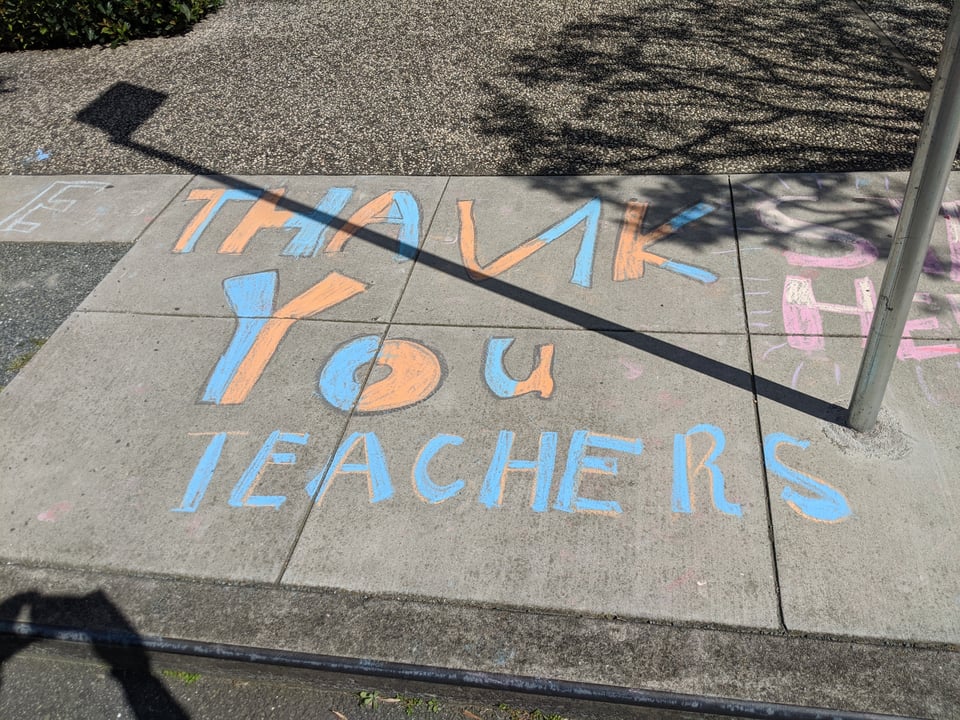
There's a lot of reasons why these things have all been in trouble, but a huge part of it is the rise of the ultra-wealthy and extreme inequality, leading to privatization on steroids and a gutting of institutions to make a profit or satisfy the egos of the oligarchs. I'm massively generalizing, of course because this topic could be a whole book.
But there's also the fact that some of the worst people in the world don’t want us to be able to understand what’s really going on. Or to be able to question the flood of slop and propaganda (slopaganda?) they’re sending our way. I've written before about being a kid and watching public education get downsized in the name of reducing property taxes — everything that people warned might happen as a result has happened, and it's pretty depressing.
I don't have any magical solutions to restoring the institutions that have been undermined. That's not why I'm writing this. I do want to return to the theme of the humanities, and the notion that thinking intensely about the unquantifiable and the numinous is a worthy pursuit — one of the most worthy pursuits we can have in this world.
The insight I want to offer here is that in addition to fighting to save all the institutions I named a moment ago, we should be expressing pride in our tendency to noodle and overthink the meaning of stories. To perform the dreamy kind of pattern recognition that only our human brains can achieve, to stumble across connections that no algorithm would ever make. I believe, more than ever, that the humanities are vital to, well, humanity. And that we have to protect them with everything we have, or everything else will slowly slide into the pit.
Hey, if Lessons in Magic and Disaster sounds interesting to you, I’d be so grateful if you preordered it from Bookshop.org, your local bookstore, or anywhere else. If you pre-order from Green Apple Books, I’ll doodle, sign and personalize according to your requests in the comment field. If you pre-order and send me your receipt via this Google form, I’ll send you some deleted scenes from All the Birds in the Sky plus a 30,000 word glimpse of the sequel, All the Seeds in the Ground. (Details here.) I’m so grateful for your support!
